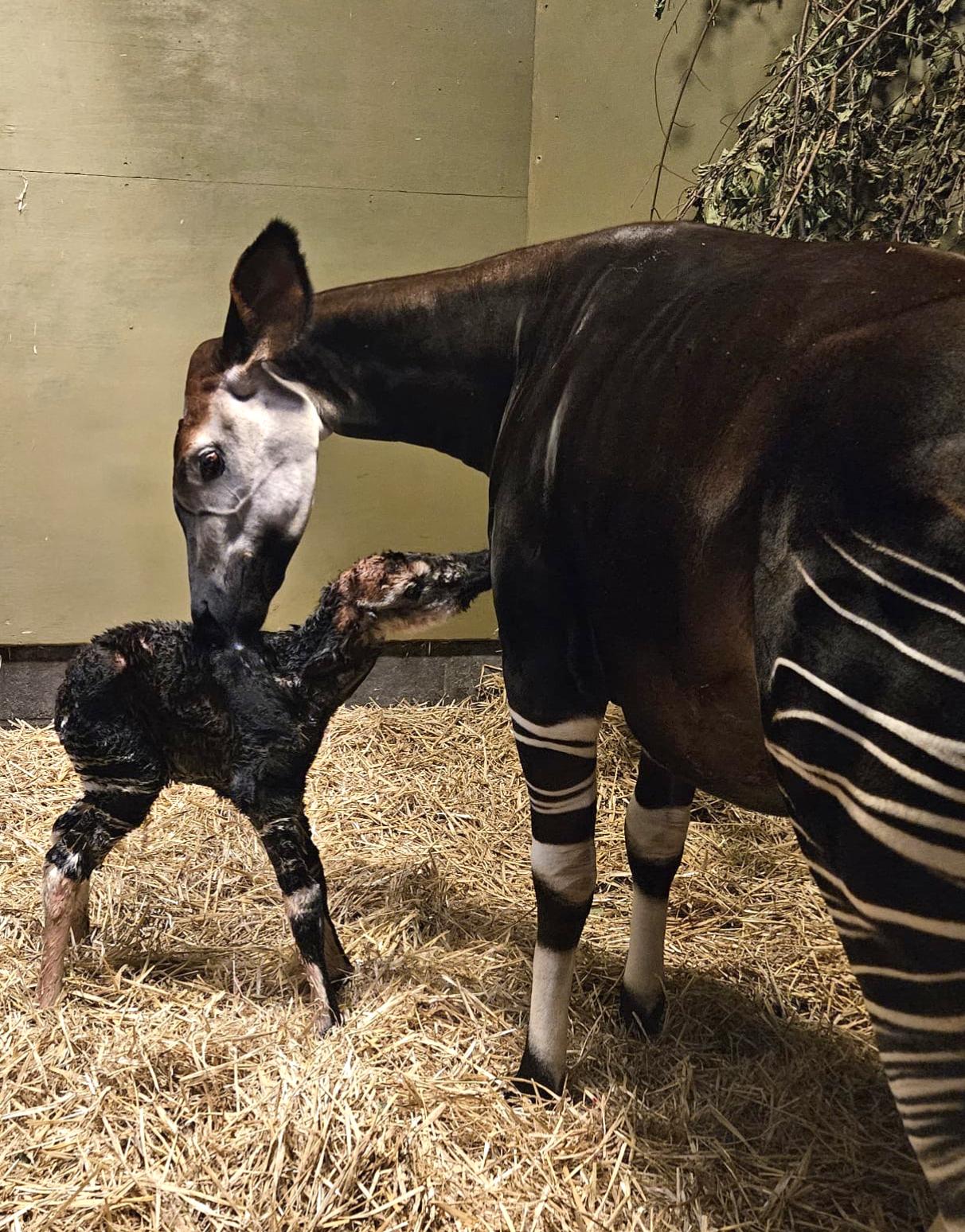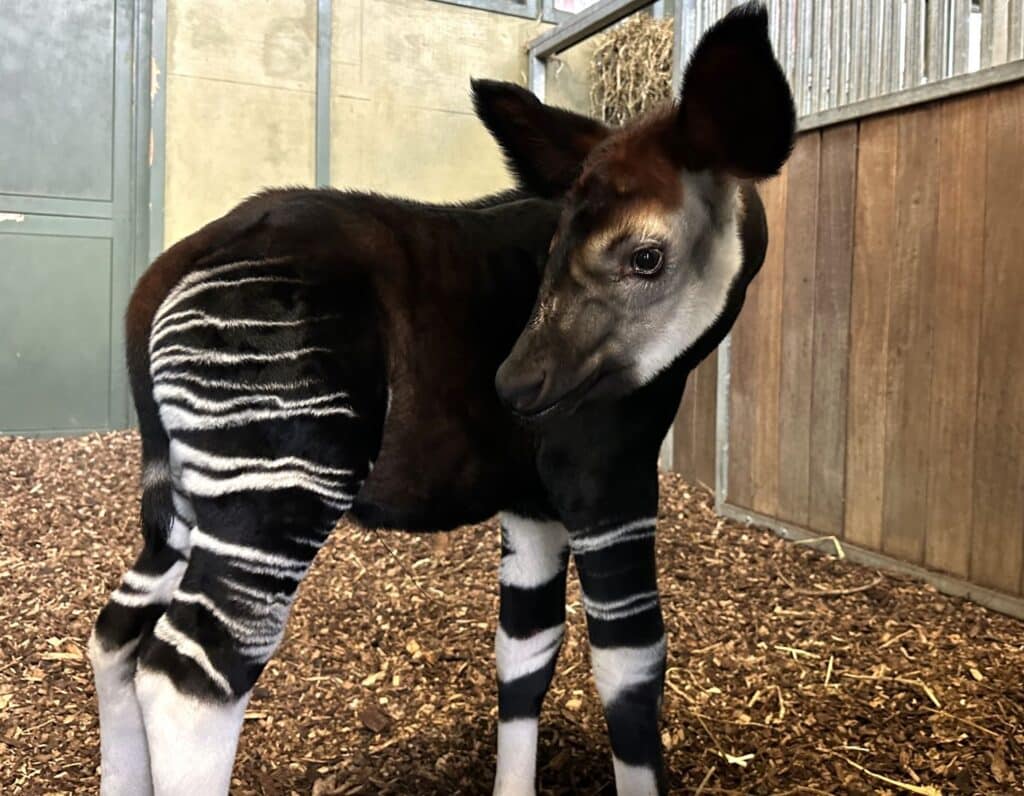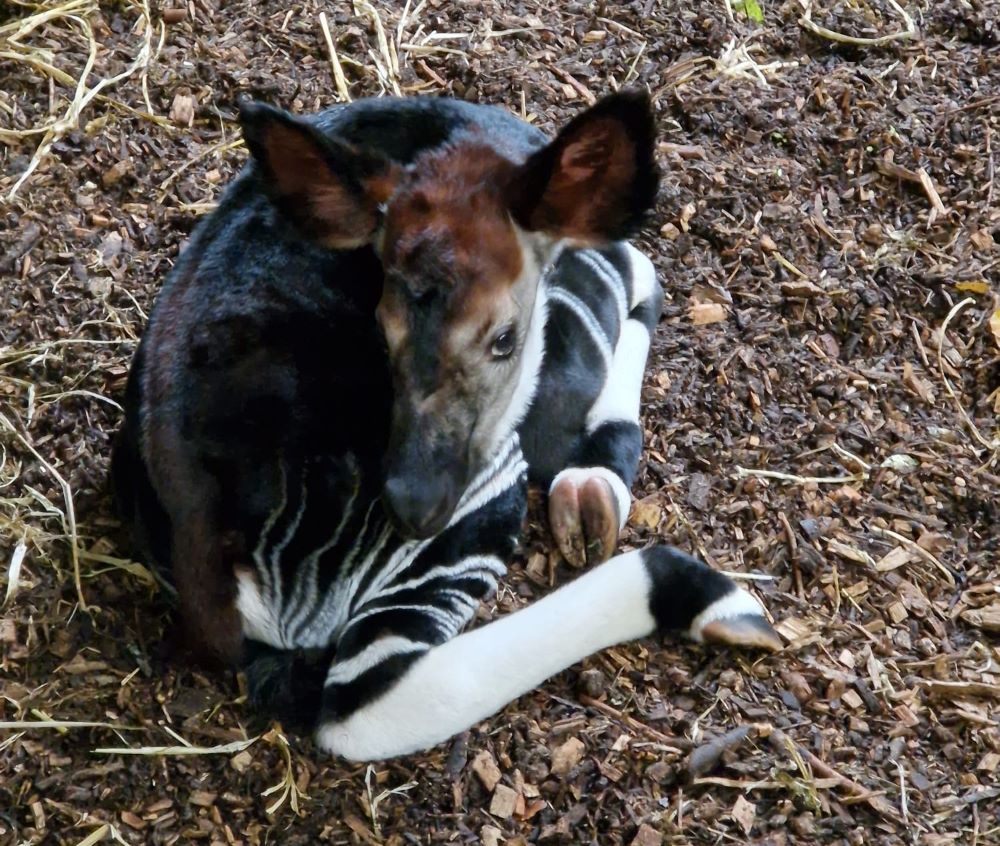Introducing okapi calf, Kayemba
December 16, 2024
December 16, 2024

Marwell Wildlife is celebrating the birth of a rare okapi calf, marking a significant milestone for the conservation of this endangered species.
The calf’s mother Niari was herself born at Marwell five years ago to Daphne and Jabari. This marks an incredible third-generation success, highlighting the zoo’s expertise in breeding and caring for okapi.
The species, often referred to as the ‘forest giraffe’ is native to the dense rainforests of the Democratic Republic of Congo and faces increasing threats from habitat loss, poaching and illegal mining, with fewer than 10,000 individuals estimated to remain in the wild.


Zoe Newnham, Hoofstock Senior Animal Keeper, said: “This birth is a huge milestone for us and for okapi conservation. Successfully breeding a third generation underscores the expertise and commitment of our team and it has been especially rewarding to have worked with Niari from birth all the way to now seeing her as a mum herself. Niari has been an attentive and brilliant mum so far, and the calf we have named Kayemba, after a place in the Democratic Republic of Congo, is doing very well, feeding regularly, nesting, and occasionally exploring his surroundings under Niari’s watchful eye. Every new arrival brings hope for the survival of this extraordinary species.”
Kayemba was born on 28 October following a 14-month gestation period. In the wild, okapi mothers leave their calves hidden in dense vegetation, returning only to nurse them. This instinctive behaviour helps protect the vulnerable newborns from predators.
Interestingly, okapi calves do not defecate for the first 40 to 60 days of life—a unique adaptation thought to reduce the likelihood of detection by predators. It is vital that new mothers bond with their babies immediately for the survival of the calf, so keepers have been keeping a watchful eye on the pair behind the scenes.
The okapi house is now open, however guests hoping to catch a glimpse of the new arrival will need patience, as the calf remains in a ‘nesting’ phase.
Zoe explained: “We know guests will be excited to see Kayemba, but we want to make sure that both animals enjoy some peace and quiet, as this is essential in the first few weeks of the nesting period. Okapis are very shy animals and so we prefer to keep okapi dams and calves in a calm and quiet environment to reduce noise and stress levels, with calves becoming more confident as they grow. Kayemba will remain safely tucked away in its nest, but will occasionally venture out to explore, so guests may be lucky enough to catch a quick glimpse during this time.”
Despite their zebra-like stripes on their hindquarters which help camouflage them in the shadows of the rainforest, okapis are more closely related to giraffes, and their elusive nature meant they remained undiscovered until 1901.
Marwell plays a vital role in the EAZA Ex situ Programme (EEP) for okapis ensuring a genetically diverse and sustainable population.
Zoe, added: “The birth of the new calf is an exciting and emotional time for the team. Working with the species is a massive privilege and a lot of hard work and dedication goes into creating positive bonds with them every day. While moments like this are cause for celebration, they also remind us of the urgent need to protect wild populations.”